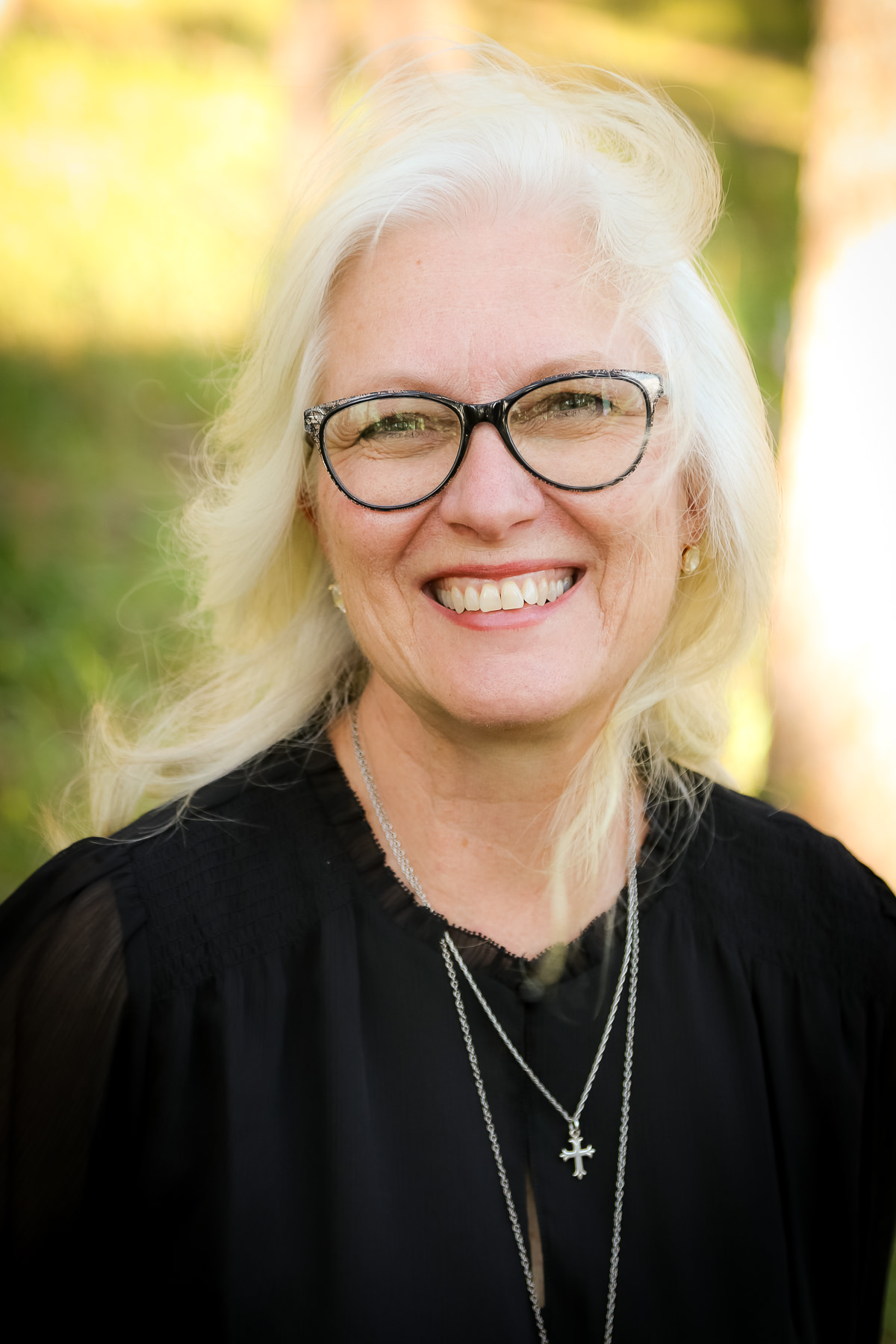Why are we encouraged to sing Psalms, hymns and spiritual songs to one another and to ourselves? In this column, Cultivating Songs of Faith, we explore that question by looking at a particular song of faith each season, offering the story of its creation from the life of its author or composer. What you read here is a reflection based on the hymn rather than a formal academic history. I hope to help you to taste, see, and rediscover what is good in great hymns, and to enter into the conversation they have with Psalms and newly created songs.
![]()
I sat crouched on the small step in the empty darkness, the room hushed and still. I took another deep breath and felt again the sense of God’s presence that all at once seemed to surround me, thick and close, yet invisible. There was no one else in the chapel with me except Him.
I looked up in the dim light and focused my gaze on the wooden cross towering above my head. Did He really die on a cross like that, for me? Even as I asked this question in my fifteen-year-old heart, I felt a voice answer, in a clear and present but not fully audible tone, “Yes, for you. If you were the only one, I would have died for you.” This thought was burned into my soul that night in a way that I would never forget. Even now as I think of it, I am holding my breath.
‘Twas grace that taught my heart to fear
And grace my fears reliev’d;
How precious did that grace appear
The hour I first believ’d!
That was the day the amazing grace of God invaded my heart. Though I can’t pinpoint exactly what changed in that moment, it was the beginning of a journey that has reshaped the whole of my life. All of a sudden, Jesus had made it clear to me that my life was about a relationship with Him, not a set of rules to master. Yet my encounter with grace was a quiet one, and for many years I was a bit embarrassed to tell my story because it seemed lacking in drama.
By contrast, the tale of English Anglican clergyman and poet John Newton (1725–1807) is filled with a sense of the miraculous. His life for nearly twenty-three years was of a man running from God. He deserted the Royal Navy and had become embroiled in the Atlantic slave trade. He was well known to his shipmates as one of the most profane of sailors and was by his own description a “wretch.”
In the midst of a storm on the Atlantic in March of 1748, he was nearly thrown from the ship’s deck and cried out to God for mercy. Newton’s face to face encounter with the Divine changed his life, and some 30 years later shaped the hymn “Amazing Grace.”
This transforming experience drew Newton into a study of theology, and he eventually became the curate of a small parish in Olney, England. There he struck up a friendship with William Cowper, a gifted writer and poet. Together the two partnered to write verses to encourage their small congregation and these were collected in 1779 into a volume by the title Olney Hymns. The hymns were printed as text only; it is not known whether they were sung to tunes, chanted, or simply read. It was there that the text of “Amazing Grace” first appeared.
Newton taught that unconverted sinners were “blinded by the god of this world” until “mercy came to us not only undeserved, but undesired … our hearts endeavored to shut him out till he overcame us by the power of his grace.”[1] Newton’s letters and diary entries often contained the exclamations, “I was blind but now I see!” and, “Oh to grace, how great a debtor!”
In the early 1800’s, the verses of “Amazing Grace” made their way to America and were caught up in the Second Great Awakening. The common meter of the lyrics made it easy to sing to many different tunes. It was the American composer William Walker in 1835 who set the words to the tune NEW BRITAIN that we are most familiar with today. A few years after that, Harriet Beecher Stowe wrote Uncle Tom’s Cabin and gave the hymn to Tom, the main character, to sing. She included a seventh stanza not written by Newton, but which had been passed down through African American communities orally.
When we’ve been there ten thousand years,
Bright shining as the sun,
We’ve no less days to sing God’s praise,
Than when we first begun.
The hymn “Amazing Grace” resonates with people of vastly different cultures and across centuries of time. It speaks of an experience with God that is universal and at the same time intensely personal. It describes my encounter with God’s grace: the realization that until that moment I was actually lost. Like Newton, I was suddenly aware of a truth that I was blind to before. And now I am connected in a way I never would have imagined to a man from the 18th century living a very different story from mine.
Newton was astonished that God would pour out His divine favor and grace to save a person like him. He saw this grace as coming from the very heart of God, a heart that loves each of us lavishly and will go to the ends of the earth to find us. Like Newton, I wasn’t looking for God, but I found Him looking for me.
Who was this God looking for me? Someone who could see only my faults and failings? No, as I read in the Psalms, His very character is described as full of grace:
The Lord is gracious and compassionate,
slow to anger and rich in love.The Lord is good to all;
he has compassion on all he has made.— Psalm 145: 8-9 (ESV)
The perfect embodiment of this grace was seen in the life of His Son. Jesus came to earth to personify grace, to live a life that was full of it, full of grace and truth.
And the Word became flesh and dwelt among us, and we beheld His glory, the glory of the only begotten of the Father, full of grace and truth.
— John 1:14 (ESV)
My quiet experience of coming face to face with the grace of God as a fifteen-year-old was nothing like John Newton’s encounter. It was not a dramatic rescue from a storm-tossed sea. It was more like a slow tide coming into the shore, quietly but surely filling every barren inch with fresh and thirst-quenching water. But if this astounding grace is actually a facet of God’s character, and if He truly is good to all, then surely it is given in the same measure to all. I have drunk from the same well as Newton, and this living water is available to anyone.
No matter what our story, the ground where we stand at the foot of the cross is all level ground. We have all received astonishing grace or we could not stand at all. Grace is undeserved, unconditional, unlimited, unfathomable.
I need grace, God’s amazing grace, every day, just as much as I did on that first day. I can trust that each day He will guide me, and at the end of my life His Grace will lead me home.
![]()
A New Song of Grace
My hope in this column is to tell you of a beloved hymn and also introduce you to a new song that is in conversation with it. A dear friend of mine has written a song that beautifully expresses God’s heart of grace towards us. The song is called “The Heart of Our God.” It was written by my fellow Cultivator Matthew Clark and is found on his album Only the Lover Sings. [2] It tells how God draws us into His story, much like Newton did in “Amazing Grace.” Accompanied by the tender sound of strings, the final verse of this song says:
And I promise it’s worth it to stare down the worst
To face up to a Face crucified
If it means we can find an old highway had cleared
That leads home to the heart of our God
What is the song of grace that God has put in your heart?
![]()
Amazing grace! (how sweet the sound)
That sav’d a wretch like me!
I once was lost, but now am found,
Was blind, but now I see.
‘Twas grace that taught my heart to fear,
And grace my fears reliev’d;
How precious did that grace appear
The hour I first believ’d!
Thro’ many dangers, toils, and snares,
I have already come;
‘Tis grace hath brought me safe thus far,
And grace will lead me home.
The Lord has promis’d good to me,
His word my hope secures;
He will my shield and portion be
As long as life endures.
Yes, when this flesh and heart shall fail,
And mortal life shall cease;
I shall possess, within the veil,
A life of joy and peace.
The earth shall soon dissolve like snow,
The sun forbear to shine;
But God, who call’d me here below,
Will be forever mine.
— John Newton, Olney Hymns, 1779
![]()
[1] Jonathan Aitken, John Newton: From Disgrace to Amazing Grace, (Wheaton, IL: Crossway Books, 2007), 227.
[2] This wonderful original song and more of Matthew Clark’s music can be found at www.matthewclark.net
The featured image is courtesy of Sam Keyes and is used with his kind permission for Cultivating.
Terri Moon is a musician and a lover of Jesus. She delights in playing the music of Bach, growing English roses, baking up a good batch of scones, and all good, true, and beautiful things that point to Him. She has found that the most fulfilling adventures come through collaborating with others, and to that end she and her husband Steve (also a member of The Cultivating Project) serve gladly in their church and also on the leadership team of the Anselm Society. Together they raised four children and are now proud grandparents. Hosting friends in their Colorado home is one of their favorite joint adventures.
Terri holds a master’s degree in violin performance, and has collaborated in many concerts and taught students of all ages for 40 years. Her lifelong passion is the intersection of music, worship, and spiritual formation, and she longs to bring to life the beauty of the Church’s heritage in the arts. Terri currently serves as the Music Director of Holy Trinity Anglican Church in Colorado Springs.
Leave a Reply
A Field Guide to Cultivating ~ Essentials to Cultivating a Whole Life, Rooted in Christ, and Flourishing in Fellowship
Enjoy our gift to you as our Welcome to Cultivating! Discover the purpose of The Cultivating Project, and how you might find a "What, you too?" experience here with this fellowship of makers!


Add a comment
0 Comments